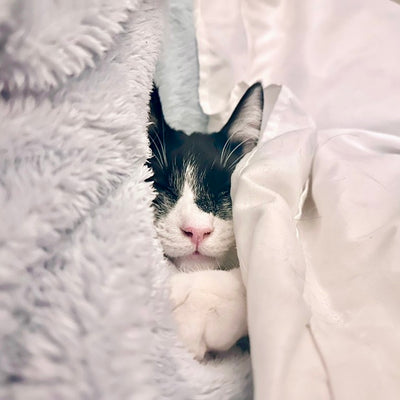About Plus Art Column
Plus Art columns provide articles that will make you feel more familiar with art. We present the appeal of art from a variety of angles, introducing recommended artists for each season and explaining them in an easy-to-understand way for beginners to art. We aim to provide content that will help you find hints that will help you find nature and art in your everyday life. Please feel free to enjoy the world of art.
table of contents
- Introduction: How do art prices determine?
- How are the prices of artworks determined?
- What is the unit price? Price criteria for fine art
- Summary: Understanding the unit price makes art buying even more fun
Introduction: How do art prices determine?
Have you ever wondered how the price of an art piece is determined? The market price of artworks is determined by various factors, such as things that seem inexpensive at first glance are traded at auctions for high prices. How is the price of an art piece determined here? We will also explain the unit price that you often hear when purchasing paintings.
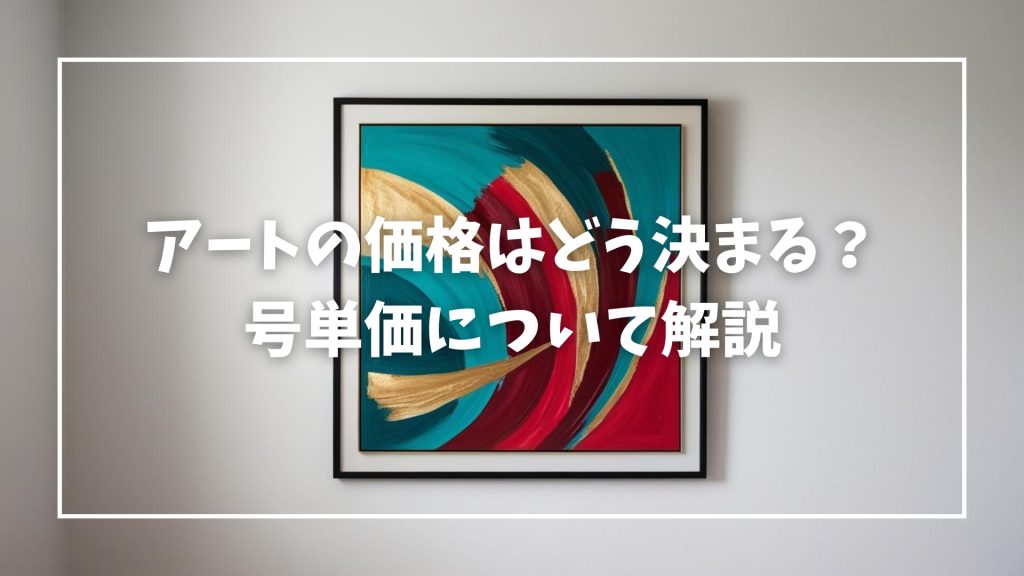
How are the prices of artworks determined?
The price of an art piece is determined by a variety of factors. Especially in the world of fine art (plane painting), not only is it simply "looking" or "popular", but it also has a major impact on price, such as the artist's career, size of the work, and materials used.
The main factors that determine the price of art are as follows:
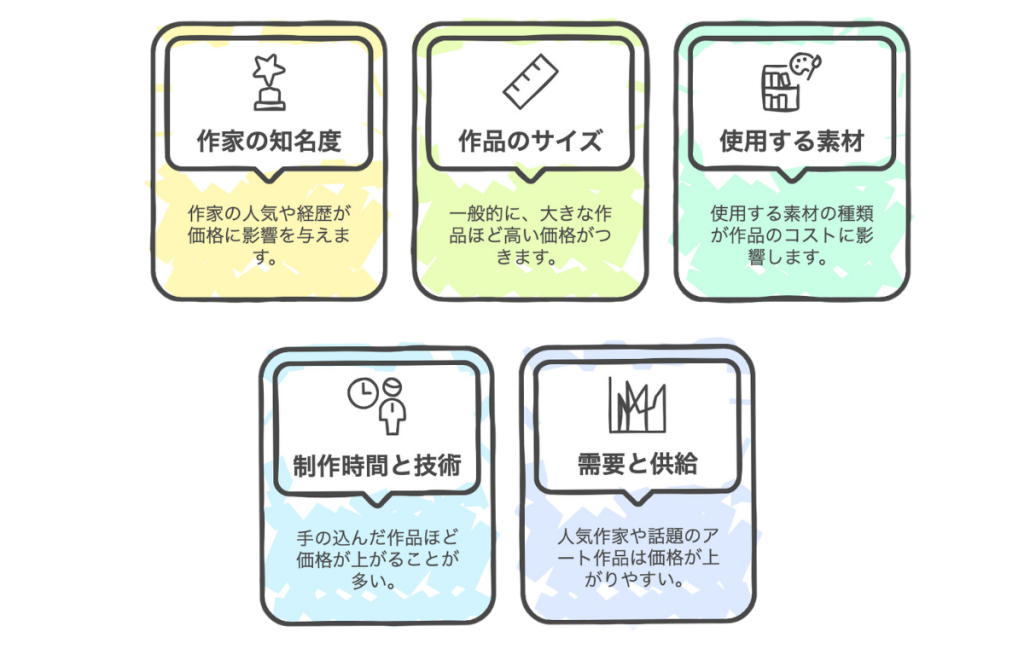
These factors combine to determine the price of the artwork.
What is the unit price? Price criteria for fine art
One way to determine the price of fine art is to think of "unit price". This is a standard for calculating prices based on the size of the work, and is especially commonly used in the sale of paintings.
What is the unit price?
The unit price of the size is a price standard set for each canvas size, and is determined in the form of "〇〇 yen per size." For example, if the unit price for issue 1 is 10,000 yen, then the 10th work would be 100,000 yen.
What is number?
Issue numbers are units that represent the size of the canvas, such as F (Figure: for portrait paintings), P (Paysage: for landscape paintings), and M (Marine: for seascape paintings).
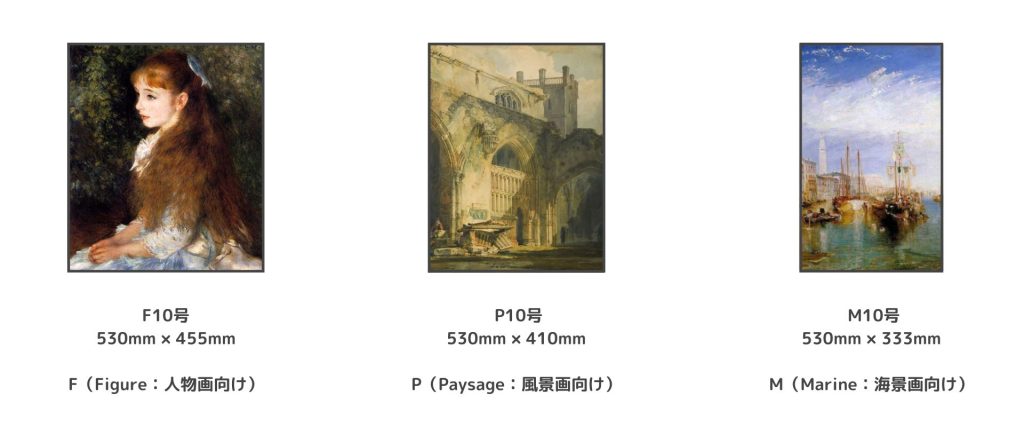
As such, even if the same number is the same, there are differences in size.
How to determine the unit price and actual price calculation
The unit price of the issue varies depending on the artist and is set according to the career and achievements. For example, if the unit price of an artist's issue is 20,000 yen per issue, the price is determined as follows.
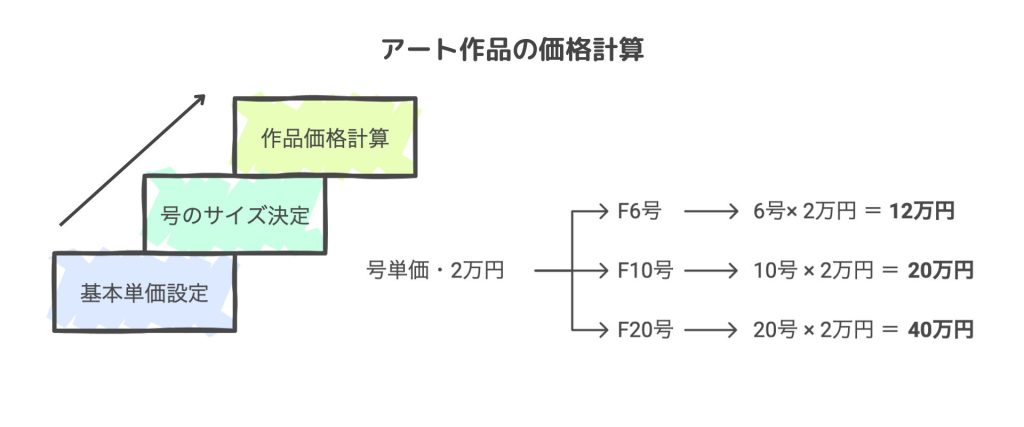
In this way, by setting the unit price as a standard, the price for the size of the work can be easily understood.
Summary: Understanding the unit price makes art buying even more fun
The price of an art piece depends on many factors, but knowing the unit price makes it easier to understand the price standards for fine art, especially when you understand it. A pricing based on the size also helps you determine whether it's a fair price when purchasing. When considering purchasing art, try to find a work that suits you, not only paying attention to the artist's popularity, but also the unit price and size!
lastly
What did you think? I hope this article will be helpful when purchasing the work. Plus Art offers services that allow you to enjoy contemporary art even more, including exhibition planning and management, and sales through online shops. We introduce a carefully selected selection of unique works, mainly from talented young artists! We have a wide range of artworks, including paintings, so even first-time art purchases can be used with peace of mind. In addition, in order to help you learn more about the appeal of your work, we provide useful information in columns, such as interviews with artists, how to display art, and points to consider when purchasing. We hope that art will blend into everyday life and create an opportunity to enrich your life.
Why not add art to your space?
▶ Plus Art
▶ ONLINE SHOP
This is the author!
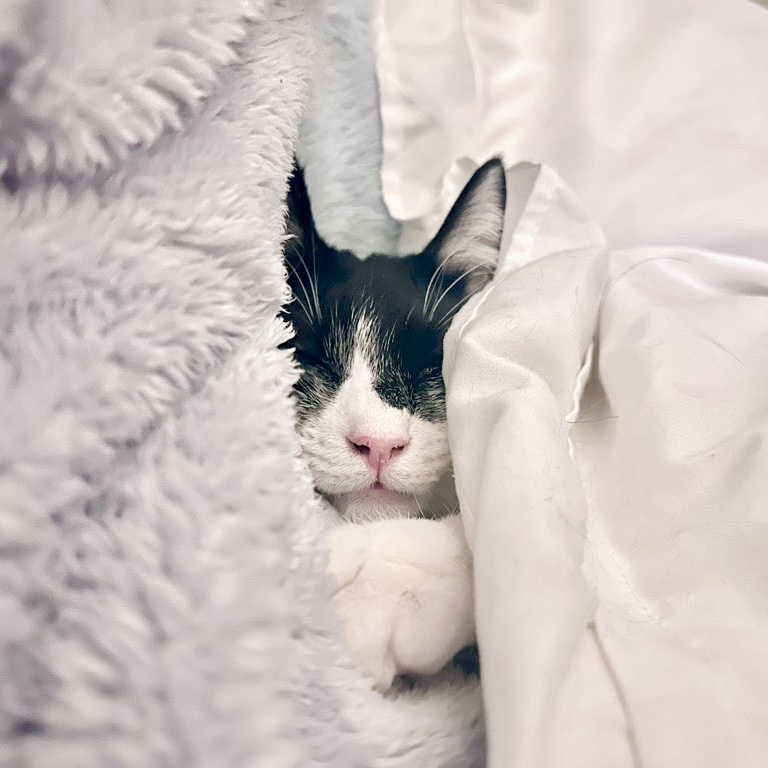
Relaxed
He studied oil painting and installation at the Art University, worked at Plus Art Gallery, and worked in exhibition management. I love art and cats.


